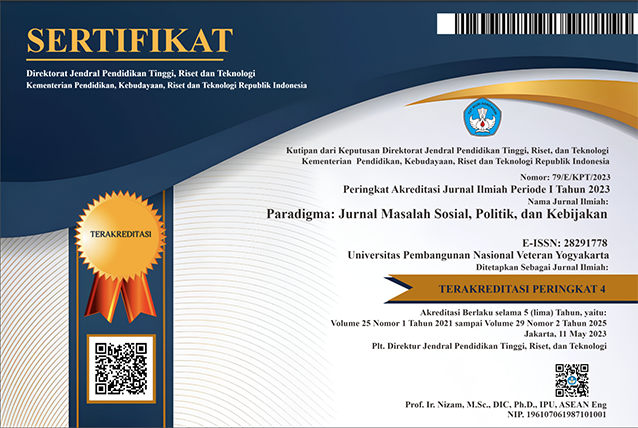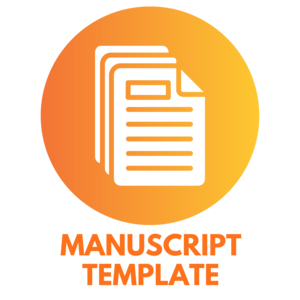Peran Uni Eropa Dalam Demokratisasi Di Republik Ceko Pasca Revolusi Beludru (2000-2007)
DOI:
https://doi.org/10.31315/paradigma.v20i1.2441Keywords:
European Union, Czech Republic, Vaclav Havel, Central Europe, Valvet Revolution, Phare Program, Copenhagen Criteria, Europe Agreements.Abstract
The European Union is an International Governmental Organization that has power to regulate and guide the member countries and has a role as an instrument, arena and actor. That power is channeled through international agreements and technical assistance principled democracy. The expansion of EU in uence in the Central European region began in the 1990s. In 1993 the Czech Republic and Slovakia split off, this phenomenon is called the Velvet Revolution. This revolution marked the collapse of the communist regime’s in uence in the Czech Republic. Vaclav Havel as the rst president of the Czech Republic decided to reform the country become more democratic. In early 2000 the EU channel values and principles of democracy in the Czech Republic through the Copenhagen Criteria and the Europe Agreement as well as support the implementation of this agreement through the nancial assistance program, called Phare Program and the Special Accession Program for Agricultural and Rural Developments. The European Union is an actor who played an important role in the process of change in the Czech Republic towards democracy.
Downloads
Published
How to Cite
Issue
Section
License
The manuscript submitted to Paradigma: Jurnal Masalah Sosial, Politik, dan Kebijakan journals are released under the license of Creative Commons Attribution-Non Commercial- ShareAlike (CC BY SA) if and when the article is accepted for publication.
We declare that:
- This paper has not been published in the same form elsewhere.
- It will not be submitted anywhere else for publication prior to acceptance/rejection by this Journal.
- A copyright permission is obtained for materials published elsewhere and which require this permission for reproduction.
Retained Rights/Terms and Conditions
Authors retain all proprietary rights to the published works, such as (but not limited to) the following rights:
- Copyright and other proprietary rights relating to the article, such as patent rights,
- The right to use the substance of the article in own future works, including lectures and books,
- The right to reproduce the article for own purposes,
- The right to self-archive the article
The right to enter into separate, additional contractual arrangements for the non-exclusive distribution of the article's published version (e.g., post it to an institutional repository or publish it in a book), with an acknowledgment of its initial publication in this journal Paradigma: Jurnal Masalah Sosial, Politik, dan Kebijakan



